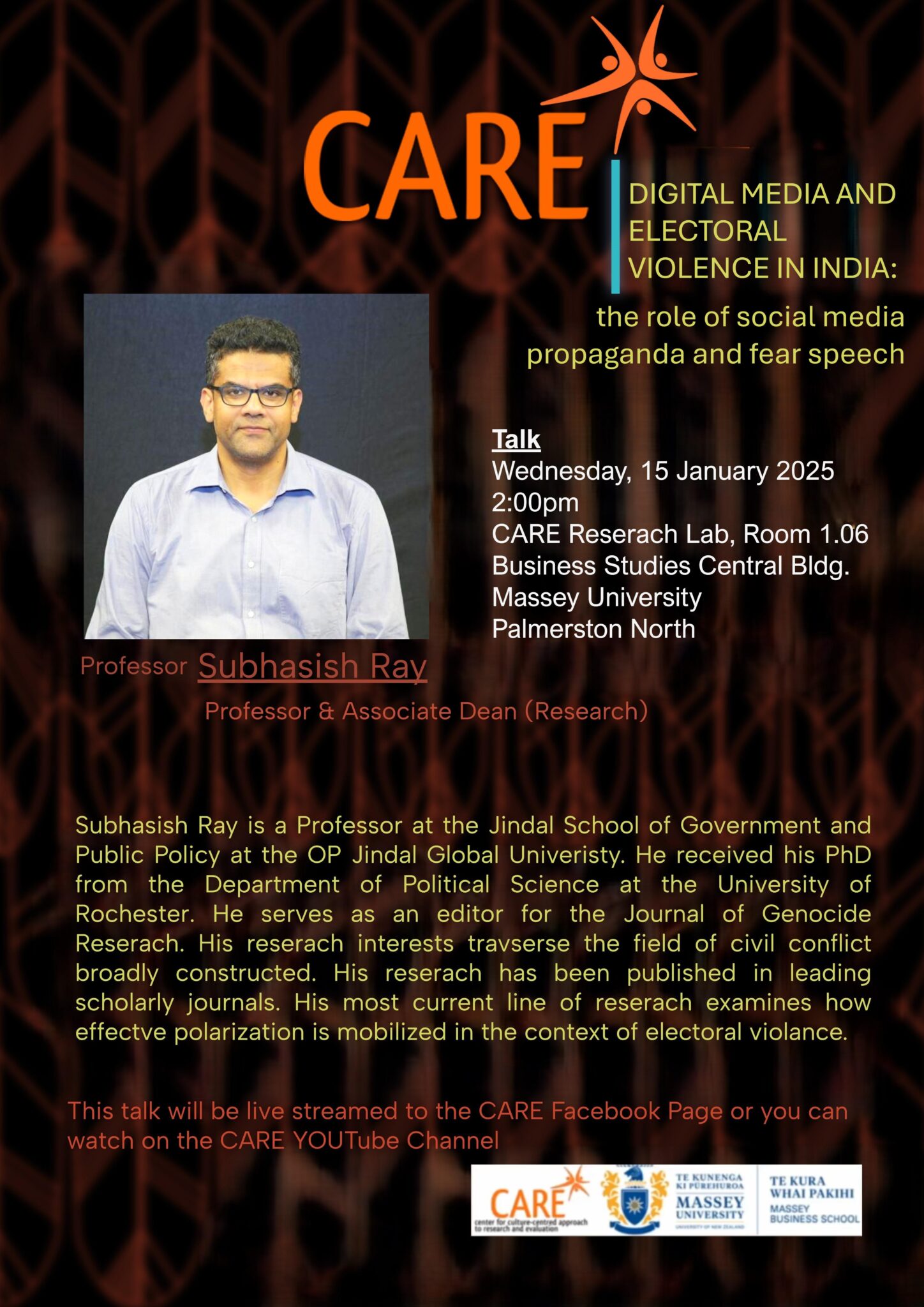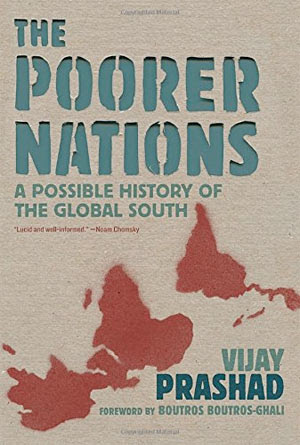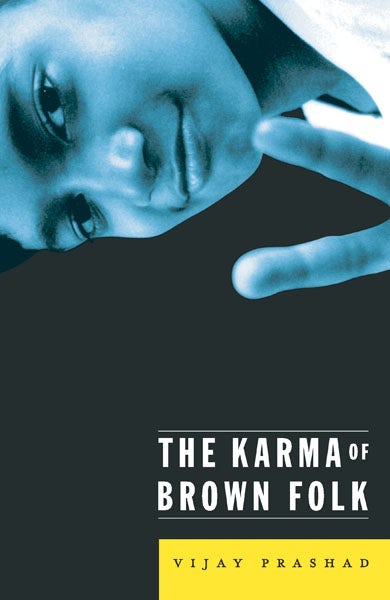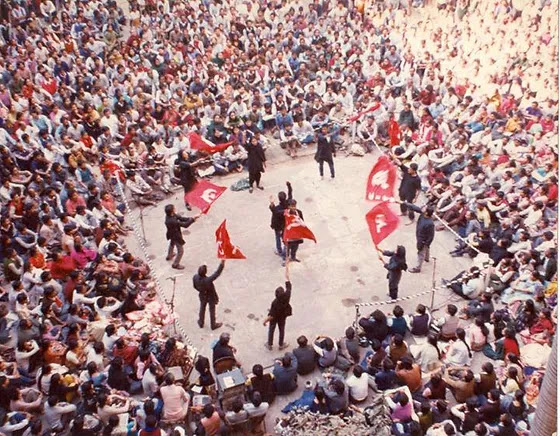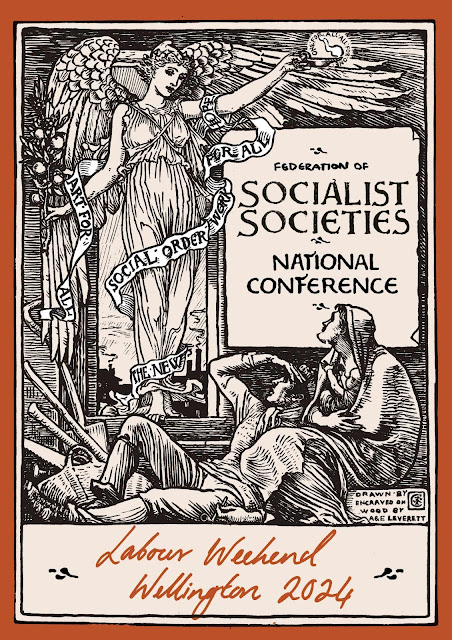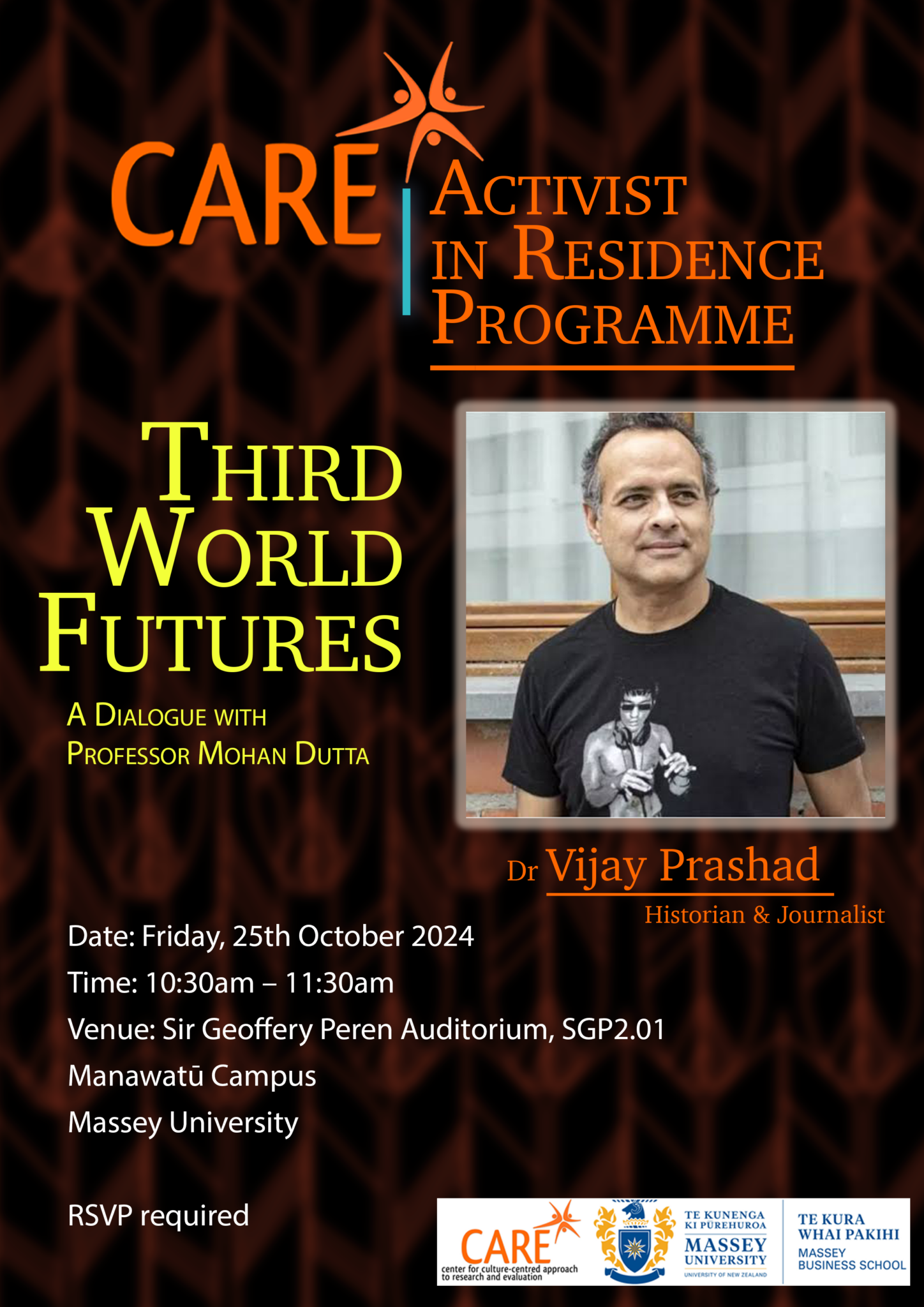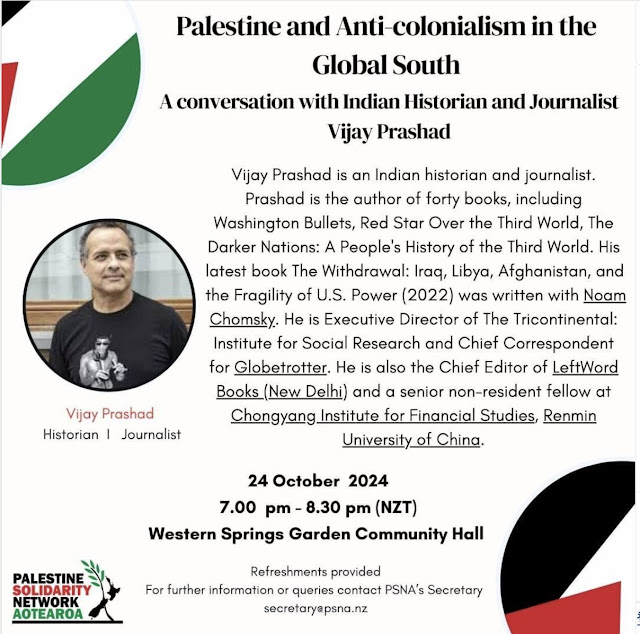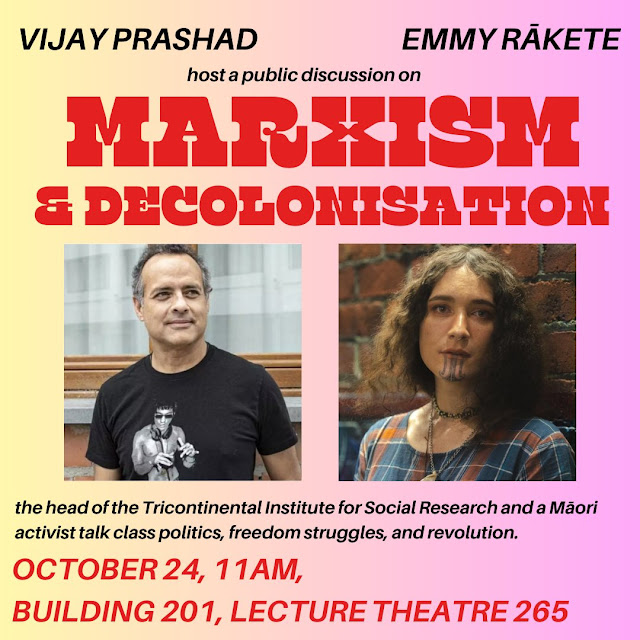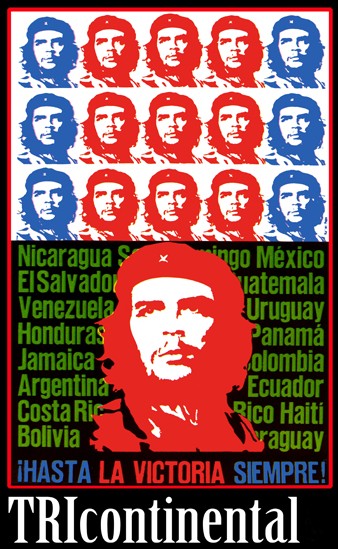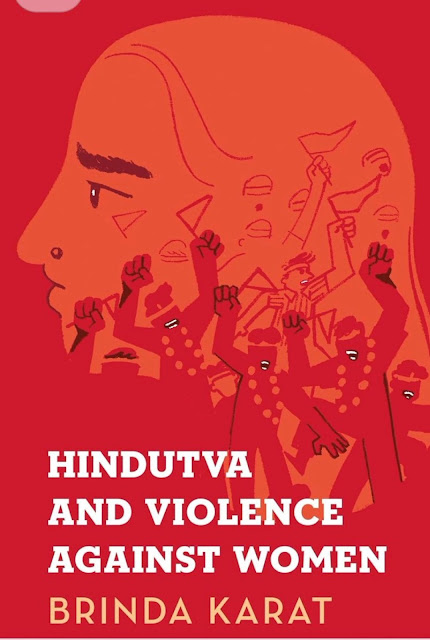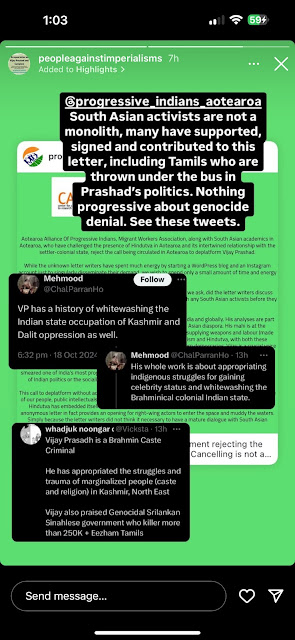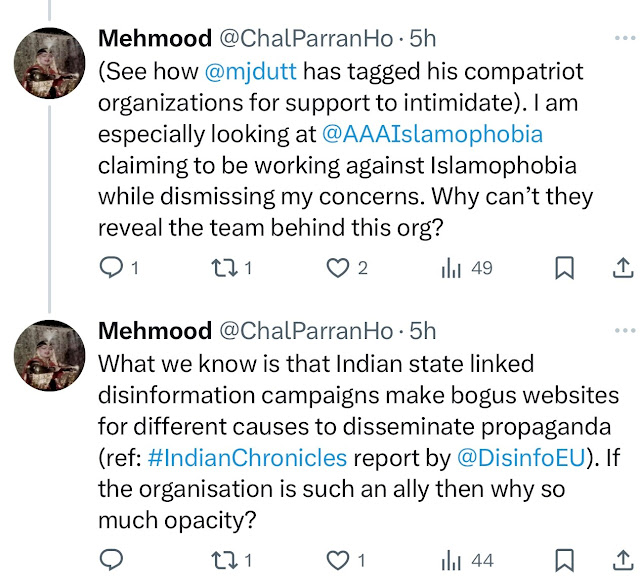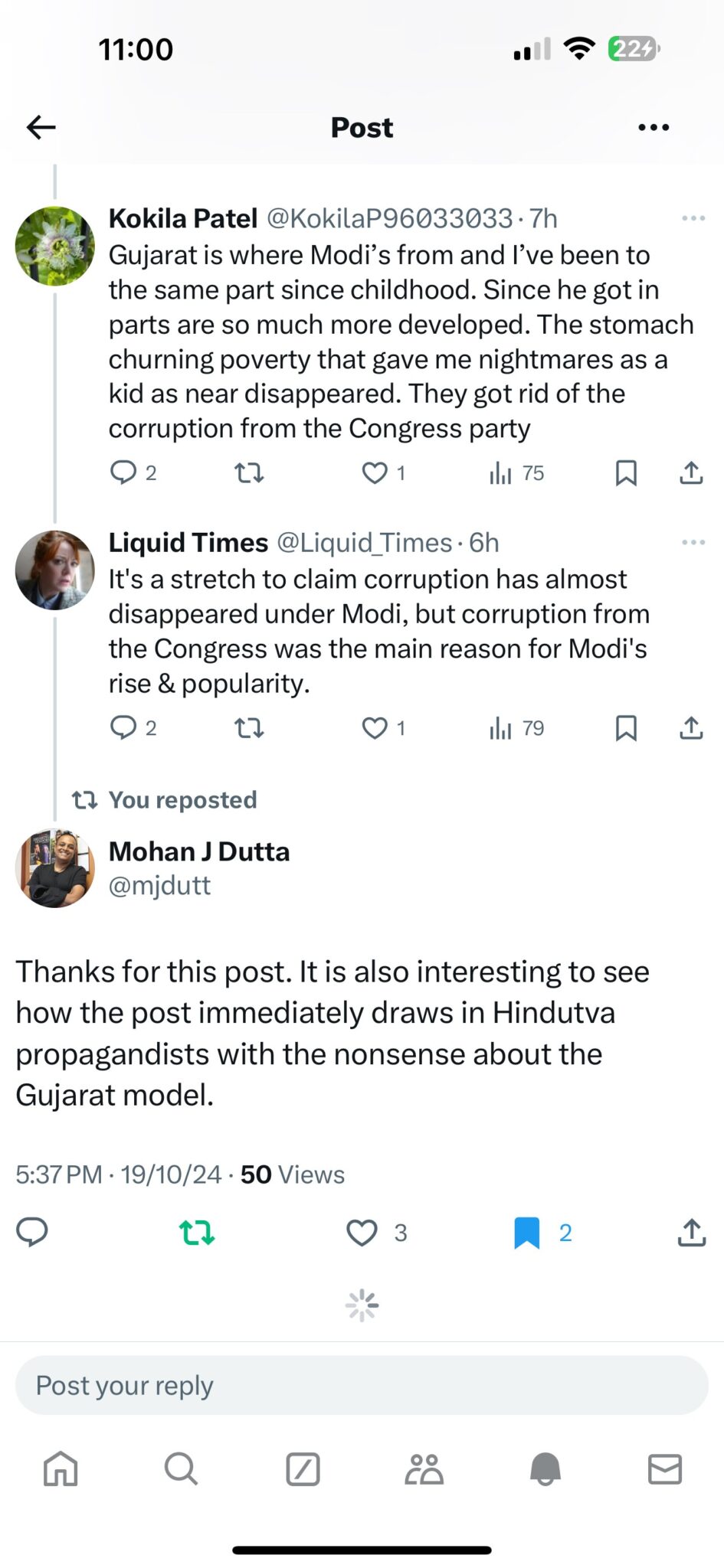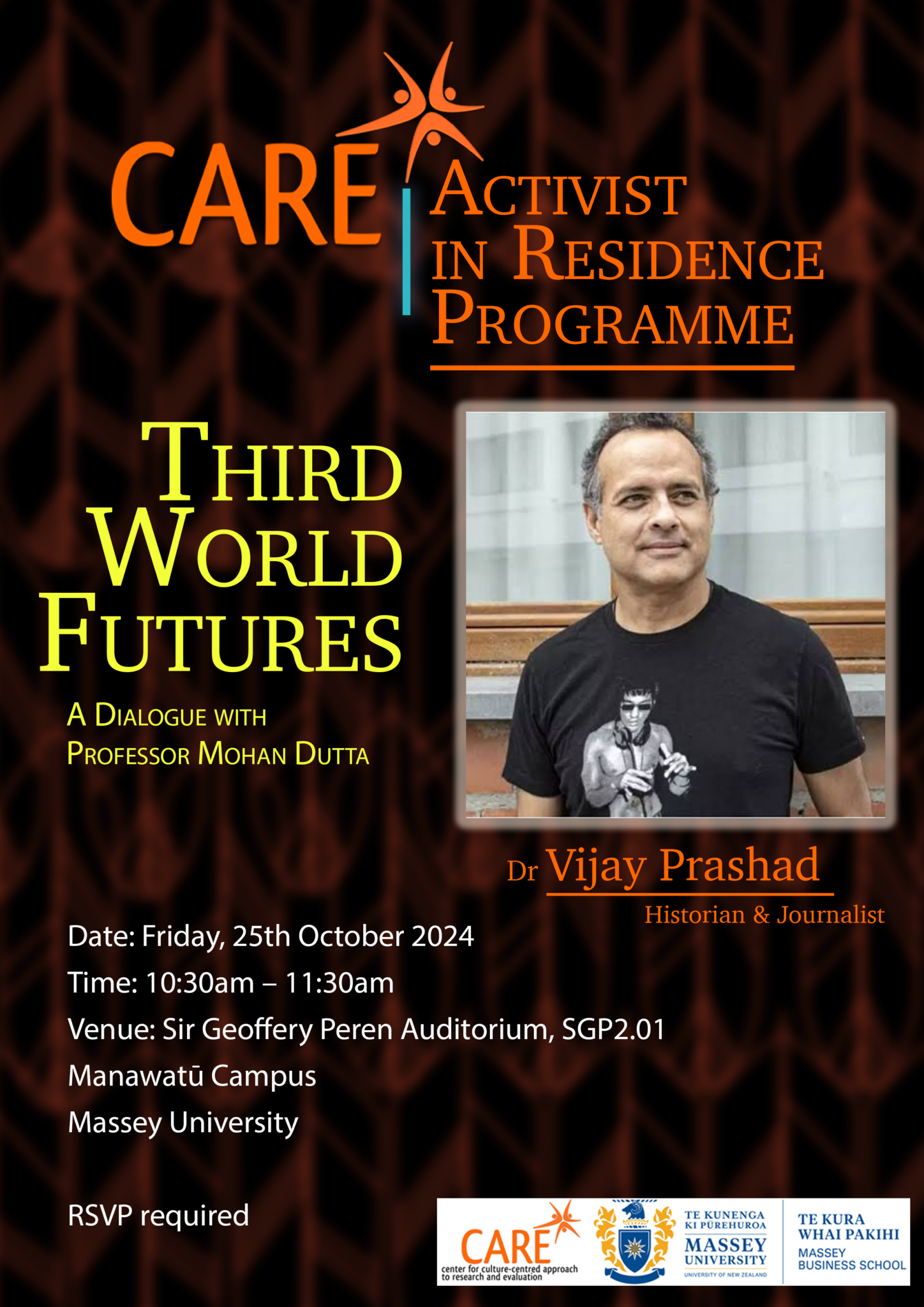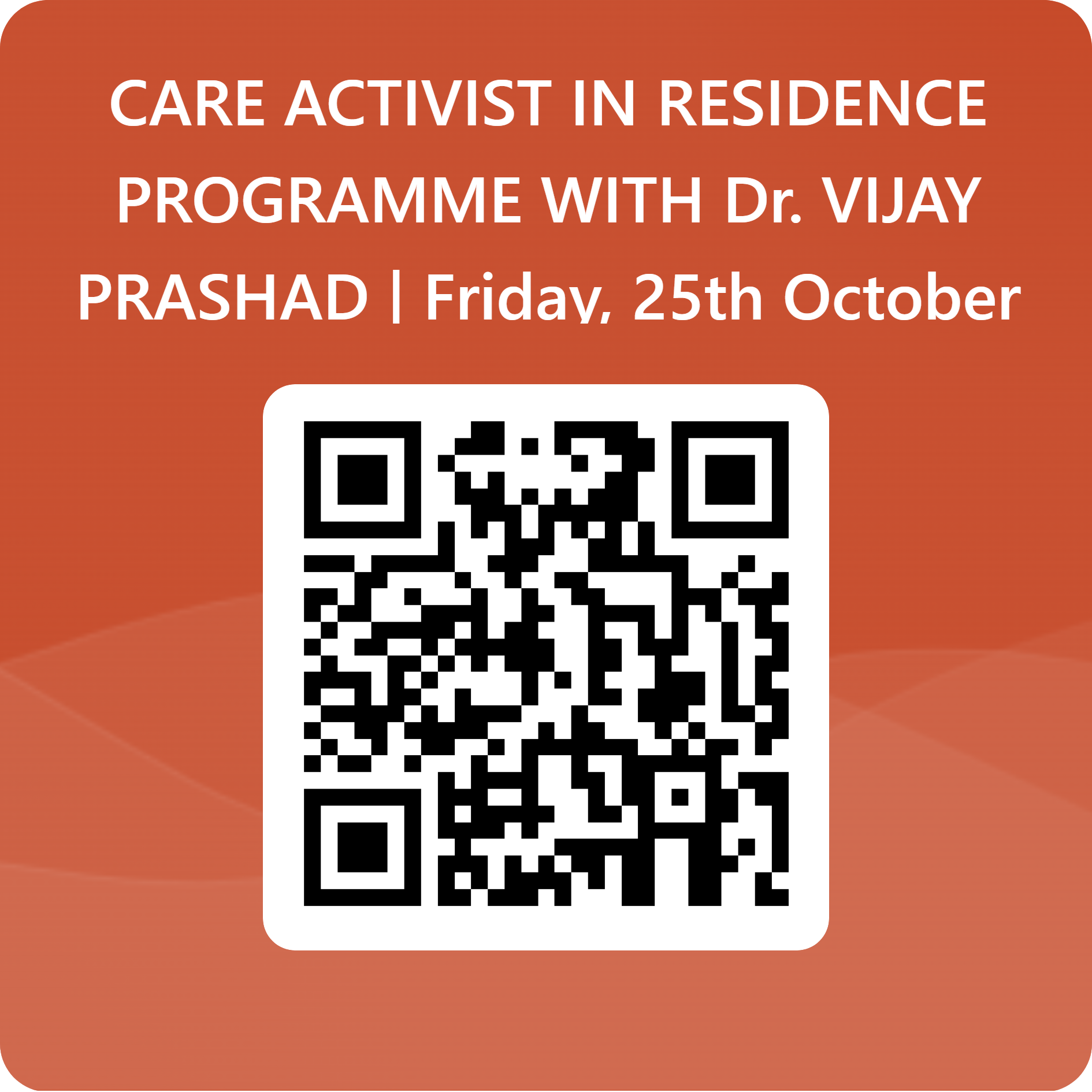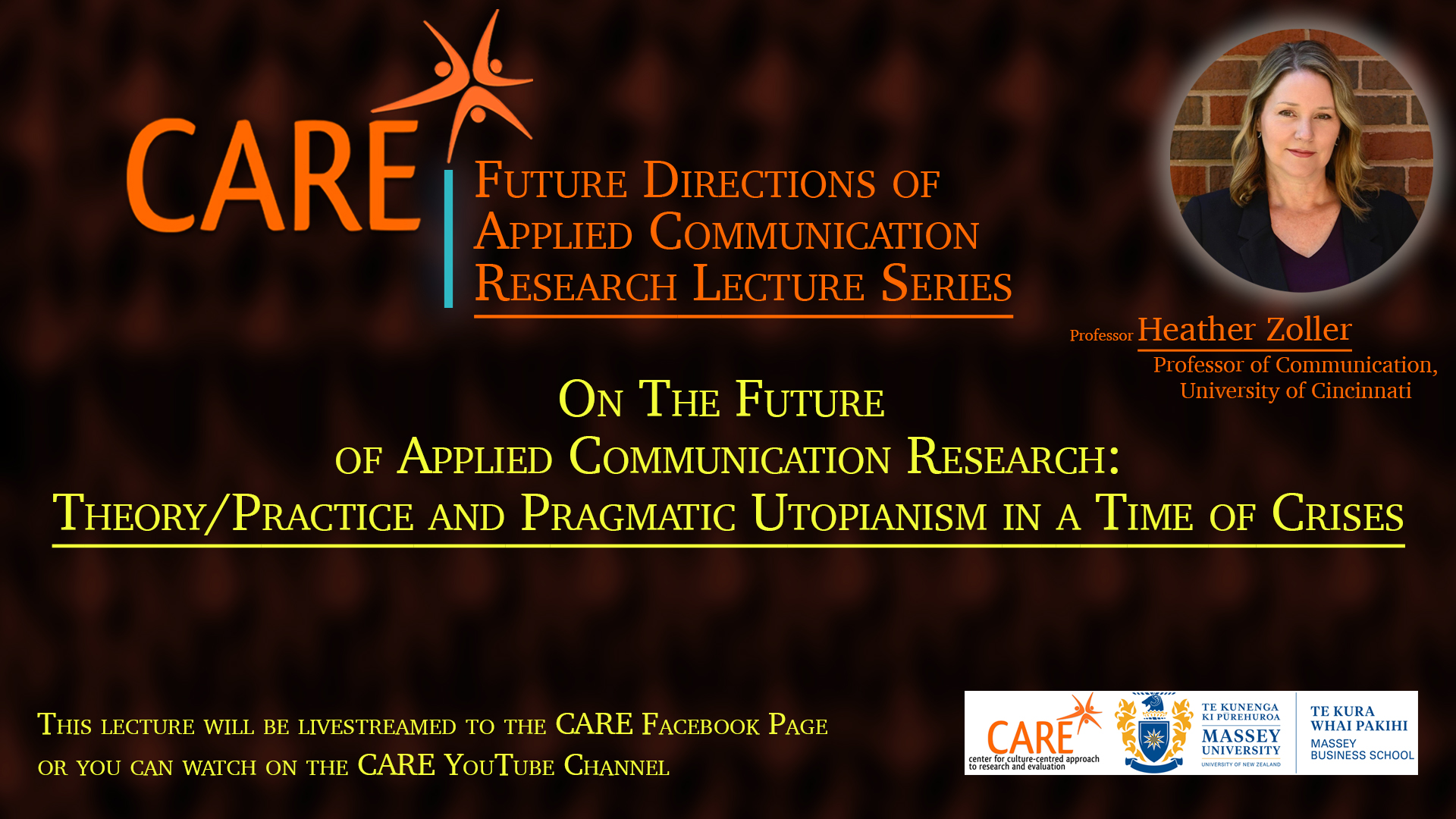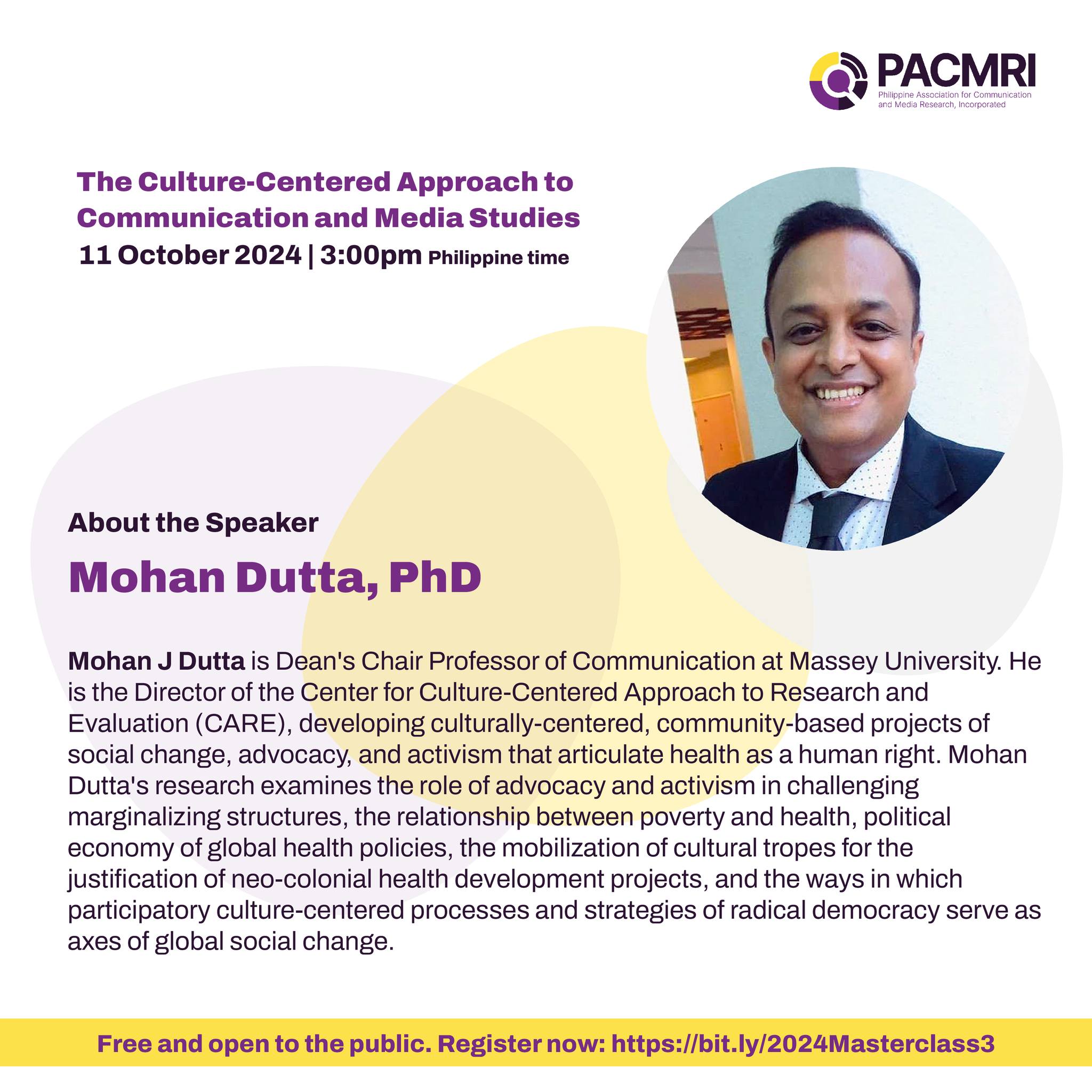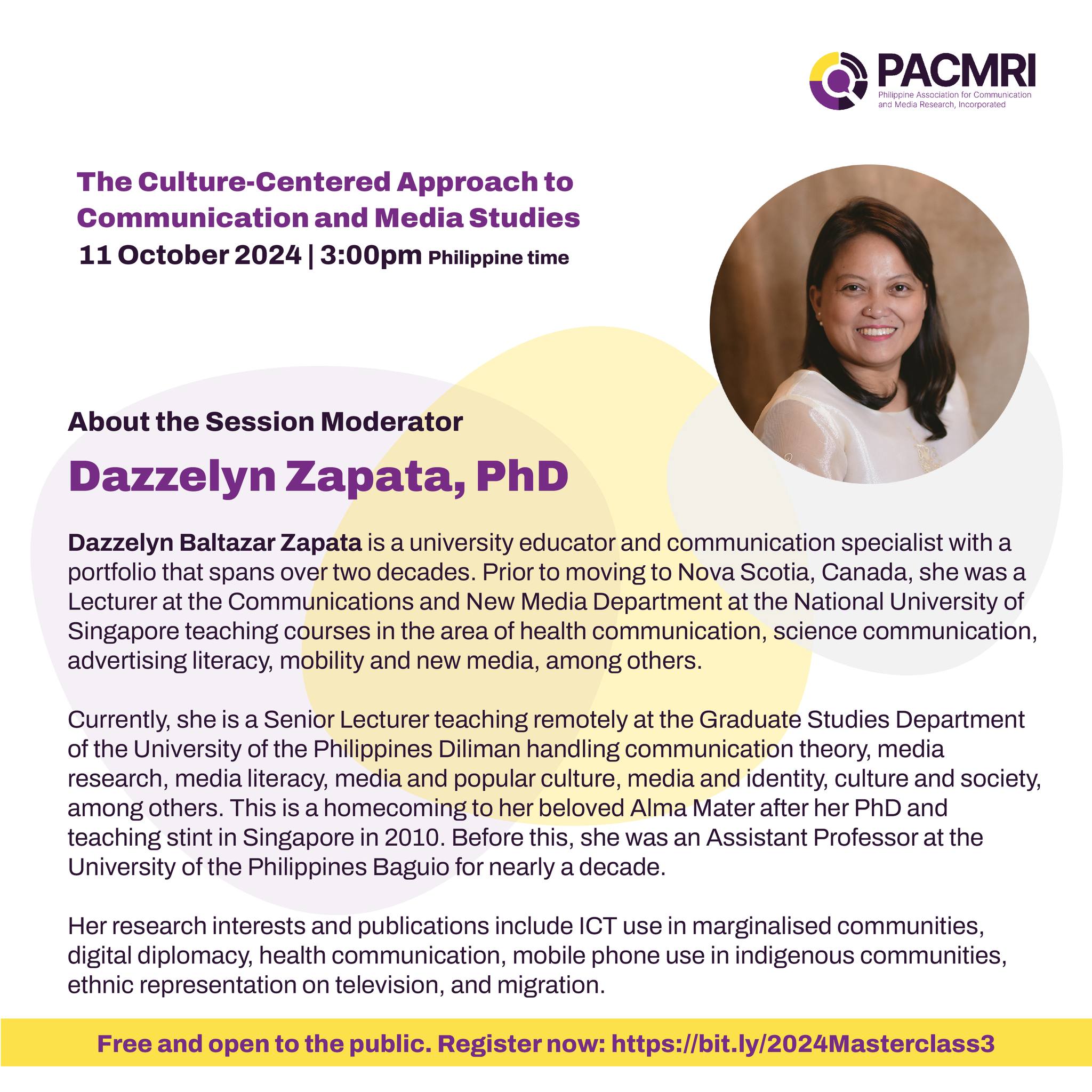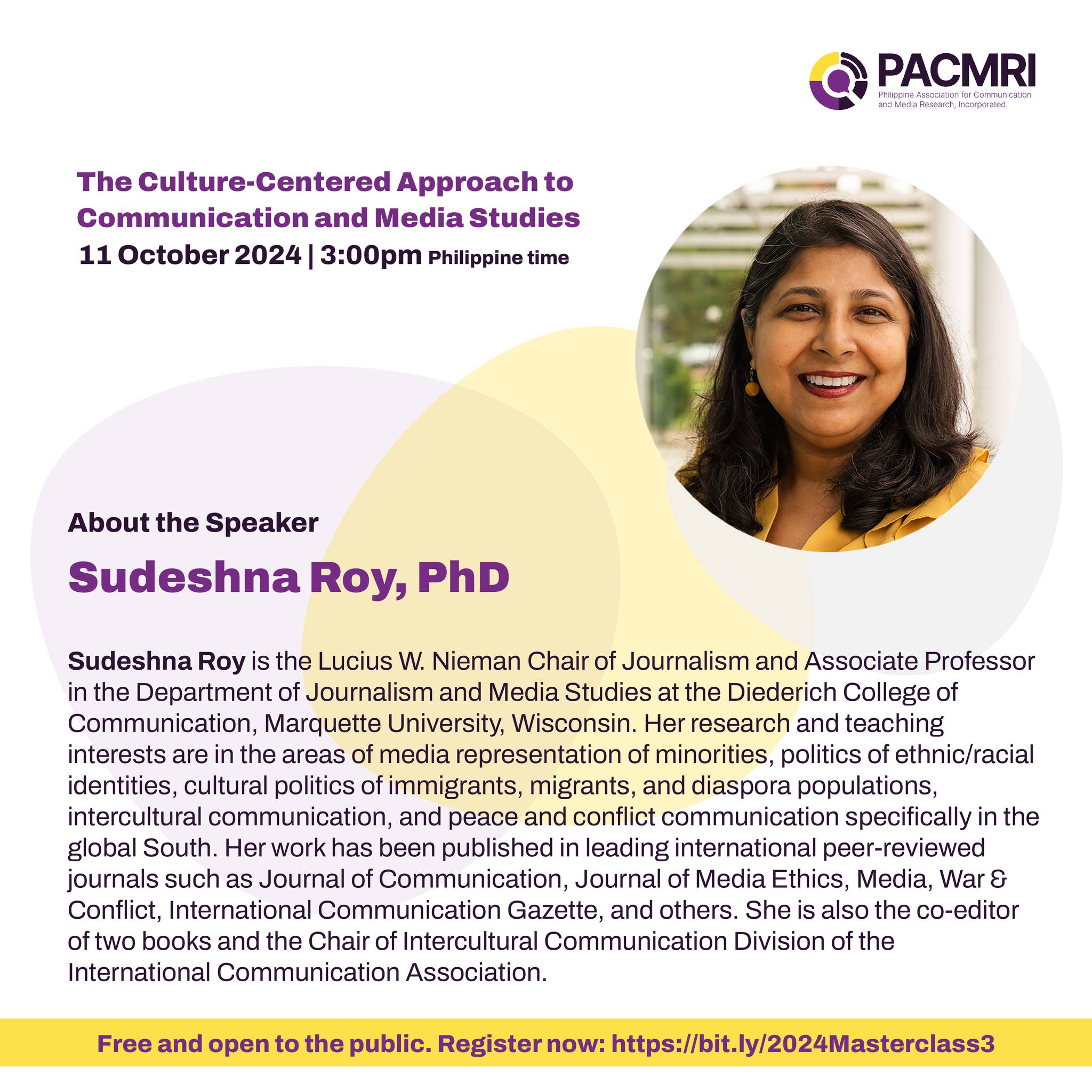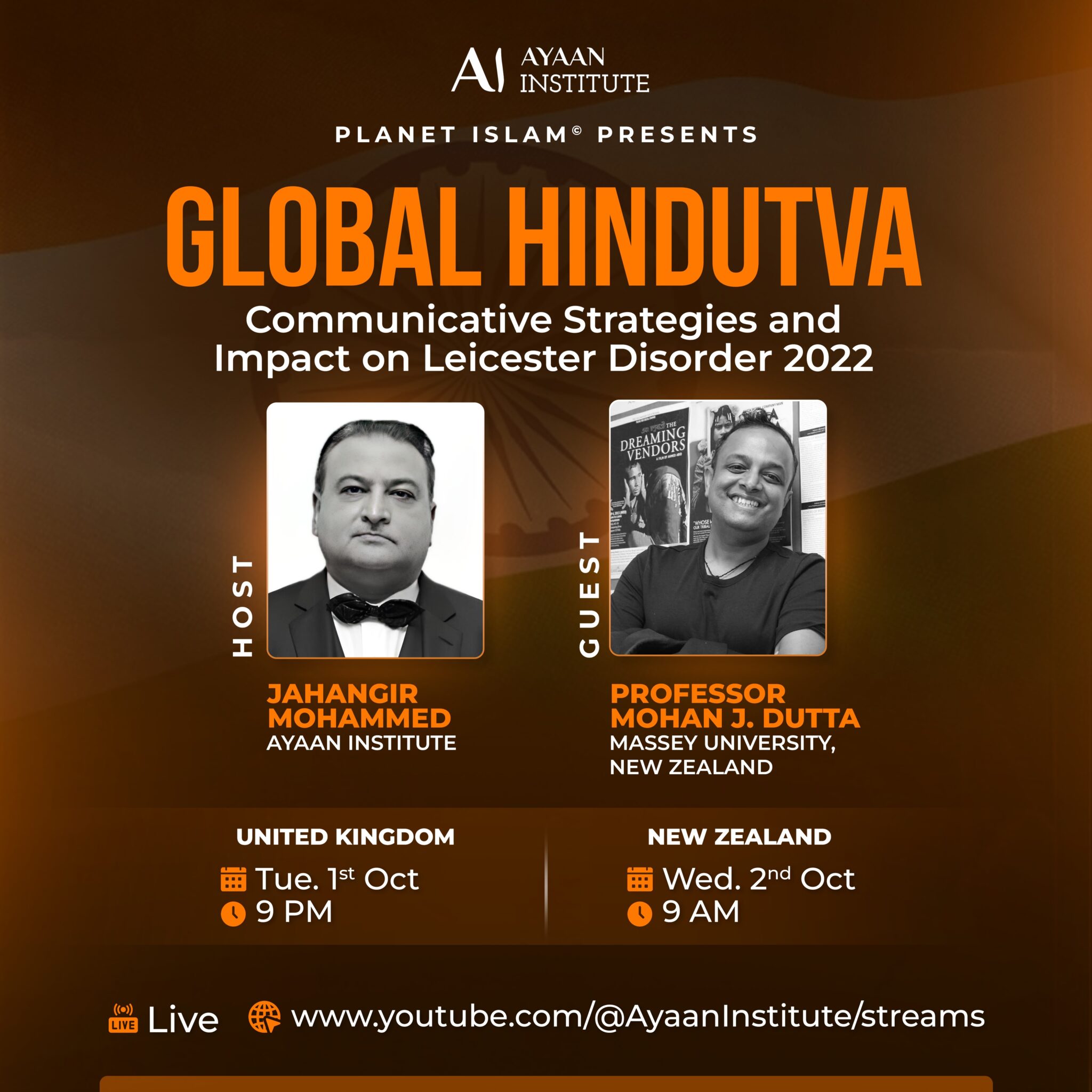The whiteness of binaries that erase the Global South: On Communicative Inversions and the invitation to Vijay Prashad in Aotearoa
by Prof. Mohan Dutta October 20, 2024 via Blogspot.com
When I learned through my activist networks that the public intellectual Vijay Prashad was coming to Aotearoa, I was filled with joy.
In my early years in the U.S., when learning the basics of the struggle against the fascist forces of Hindutva, I came in conversation with Vijay’s work.
Two of his critical interventions, the book, The Karma of Brown Folk, and the journal article “The protean forms of Yankee Hindutva” co-authored with Biju Matthew and published in Ethnic and Racial Studies shaped my early activism. These pieces of work are core readings in understanding the workings of Hindutva fascism and how it mobilizes cultural tropes to serve fascist agendas.
Much later, I felt overjoyed learning about his West Bengal roots and his actual commitment to the politics of the Left, reflected in the organising of the Communist Party of India (Marxist), a political register that shaped much of my earliest lessons around Global South resistance, collectivization, and organizing. The CPI(M) offers a critical anchor for Global South socialist organising, convergent with Marxist movements that emerged across the Global South in resisting colonialism and imperialism (consider Malaya, Indonesia, China, India, Cuba, Vietnam, Chile, Zambia, Nicaragua and so on).
Vijay and I interacted when he invited the protest theater group, Jana Natya Manch (Janam), to the U.S. I was then teaching at Purdue, learned about the visit and invited JANAM to conduct workshops. JANAM’s visit to Purdue was transformative for our academic community, building registers for conversations around theater for social change.
Vijay’s visit: an internationalist window
I reached out to Vijay on my social media, wanting to see if I could invite him to CARE during his visit to Aotearoa New Zealand. He asked me to get in touch with the Māori activist and academic Arama Rata to see if we could arrange a visit to CARE.
I have known Arama for her powerful resistance work that seeks to forge internationalist solidarities and her research leadership on the WERO project led by Professor Moana Waitoki and her collaborators. I reached out to Arama and she helped organize Vijay’s visit to CARE.
Vijay’s visit has been inspiring for many of us Global South academics and activists in Aotearoa, and CARE has been honored to participate in conversations with Aotearoa Alliance for Progressive Indians, Migrant Workers Association and other Global South academics.
We see this as a critical opportunity to visibilize our many Global South traditions of the Left that have engaged with questions of Indigeneity, decolonisation, gender justice, worker rights, and socialist transformation.
The whiteness of the Left in Aotearoa has meant that these Global South traditions have been largely erased while essentialist cultural tropes have held up the representations of our communities (think Diwali, Butter Chicken, bindis, and saris). This cultural essentialism of the settler colonial state that reduces Indians to cultural performers offering ethnic treats has unseen the political culture of Indian resistance work while simultaneously platforming Hindutva across multiple layers of the settler colonial structure.
The letter
After the visit had been finalised and the events planned out, I received a note from a South Asian activist that an open letter had been crafted by an organisation calling itself People Against All Imperialisms urging those that had invited Vijay Prashad to uninvite him.
On Campism
The letter, rife with communicative inversions (turning materiality on its head through communicative resources) labelled Vijay campist and accused him of being “one of the main public intellectuals” spreading the “growing influence of US-centred campist politics.” Note here the communicative turn that removes Vijay’s Third World roots, connections, and politics and turns him into a caricature, of growing influence of US-centred politics.
This main accusation of campism powerfully captures the concept of communicative inversion, drawing on an US-based label (of campism) to discredit one of the most critical Global South voices of our times, and therefore pressure Māori, Palestinian and Global South academics and activists that have invited Vijay to disinvite him.
Such accusations of campism ironically reproduce US imperialism by erasing the actual histories of Third World socialisms, and the ongoing experiments with socialist organising as the basis for anti-imperialism and anti-capitalism emergent from the Global South. Such accusations of campism wildly distort the politics of anti-racist, anticolonial, anti-capitalist and anti-imperial organising that diverse movements from the Global South have forged.
Note here that the invitation and the talks have been organised with strong Māori, Palestinian, and Global South presence and leadership. In the campaign targeting the Māori, Palestinian, and Global South scholars, it is unclear who the letter writer/s is/are. Was there Māori authorship in crafting the letter? What was the South Asian authorship in the crafting of the letter?
Third World politicsIronically, quite contrary to the suggestion of the letter, the Third World as a space of organizing has offered a powerful register for resistance against all imperialisms. The recognition for instance of the linkages between Third World socialist, anti-imperial struggles and anti-racist struggles formed the core of the Tricontinental and Pan-Africanist movement.
It is worth noting here the robust history of Third World movements that formed the basis of the Non-Aligned movement (NAM) and its radical politics.
It is also worth noting the original vision of “against all imperialisms” (paradoxically co-opted by the group crafting the letter and seeking to disinvite Prashad from Aotearoa) that was articulated at the Bandung Conference of 1955 formed a critical register for Global South resistance to U.S. and Soviet imperialism, instead forging the space for the Third way.
Vijay Prashad’s critical intellectual work gives agency to the people of the Global South and to the radical history of non-alignment that emerged from the Third World. The political project he envisions anchors conversations on decolonization in a persistent anti-imperialism that is anti-capitalist.
The Tricontinental: Institute for Social Research he has seeded is a powerful example of an international space that fosters Third World linkages, building registers for new ways of thinking about how we organize across spaces at the margins in challenging settler colonialism, imperialism, and militarism. It is in this spirit that I can’t wait to see the generative registers that are built when Vijay engages in dialogue with the Māori academic and activist Dr. Emmy Rakete.
Beyond binaries
Yet, another of the binaries perpetuated by the letter crafted by People Against All Imperialisms seeks to have Prashad uninvited from the talks for what it constructs as Vijay’s apologia for the CPI(M). The CPI(M) is turned into a misogynist monster, a rhetorical trope that is reflective of imperial propaganda, often used by the U.S. Central Intelligence Agency (CIA) in its attacks on Third World socialist movements. Consider here with care how this same rhetoric was deployed by the U.S. in its organizing of the genocide in Indonesia in 1965-1966. Consider the deployment of the trope in the ongoing genocidal campaign by Israel, funded by the US, targeting Gaza. The concoction of Brown misogyny gives the rhetorical legitimacy to imperial violence.
The noted feminist socialist politician of the CPI(M), Brinda Karat, is brought into the letter, her familial relationship with Vijay dragged in (replicating the sort of attack tactic you see from the far-right) and smeared as supportive of the CPI(M)’s supposed misogyny. Brinda Karat has a strong and eminent record of advocating for gender rights and resisting the culture of sexual violence propelled by Hindutva.
Any serious engagement with the CPI(M) in India must note its strong Adivasi connections, including in some of the strongest spaces of resistance. One must read about the role of women activists of the CPI(M) and the organizing of Adivasi women in resistance. One must engage seriously with the critical registers that form the infrastructures of the Worli revolt, Tebhaga andolan, and the Telangana movement.
Of course, there are multiple points of critique that one can offer toward the actual practices of the CPI(M) at different junctures (my own writings have in fact offered some of these critiques, including critiques around the party’s response to neoliberalism), and at the same time, any serious engagement with Global South resistance against colonialism and imperialism must grapple critically with actually existing socialisms of the Global South. CPI(M), much like the Janatha Vimukthi Peramuna (JVP) in Sri Lanka offer actual exemplars of Left organizing in the Global South, as do Partido dos Trabalhadores (Worker’s Party) in Brazil.
To reduce Marxist movements of/from the Global South into binaries not worthy of engagement through accusations of campist politics perpetuates whiteness, the hegemonic values of white culture while failing to seriously engage with the actual politics of diverse socialisms emergent from the Global South. These binaries unsee the strong presence of Indigenous organising within spaces of Left politics. Such binaries reflect lazy “divide and rule” tactics that is more likely to create openings for reactionary politics and divisiveness rather than considered engagement with anti-imperialism and anti-capitalism. Ultimately, such binaries, quite paradoxically in the context of the letter under analysis, uphold, perpetuate and reproduce US imperialism.
Disinformation, erasing South Asian thought, and reactionary politics
The original letter crafted by People Against All Imperialisms fails to offer robust evidence for the claims made.
It centers a piece published in The Nation and in doing so propagates whiteness (Consider here the historic role of The Nation magazine in advocating for US war efforts, including supporting the bombing of Hiroshima). It conveniently erases the response to The Nation piece by Prashad.
Its construction of a narrative seeking to demonise Prashad fails to engage with Prashad’s critical writings and commentary on Kashmir.
Kashmir Could Become the New Palestine – Truthdig
Vijay Prashad on India’s Crackdown in Kashmir: “If This is Not an Occupation, What Else is It?” | Democracy Now!
When the Aotearoa Alliance for Progressive Indians, Migrant Workers Association and CARE note the erasure of South Asian voices and any learning from South Asian intellectual traditions, the People Against All Imperialisms instagram account shared screenshots of an anonymous X (Twitter) hande, offering the tweets as examples of South Asian supporters and contributors to the letter.
When our research team and research partners critically analysed the X (Twitter) handle shared by People Against All Imperialisms, it was evident that the anonymous handle was spreading reactionary disinformation, and mobilising hate online.
When our research partner Alliance Against Islamophobia that does critical work against Islamophobia in the region called out the X handle, they were labelled propaganda websites of the Indian state. Such strategies are typically deployed by the Hindutva, far-right Zionist, and white supremacist far-right.
Reactionary calls claiming to represent the Left circulating reactionary tweets as examples of evidence further build the space for the fascist far-right. Binaries such as those propelled by the letter make room for the Hindutva far-right, setting back the work that CARE, Aotearoa Alliance for Progressive Indians, Hindus for Human Rights, Migrant Workers Association, and the various South Asian minority organisations have been carrying out to challenge Hindutva.
Building bridges
When decolonising resistance against the settler colonial state engages critically and robustly in dialogue with anti-colonial registers, new imaginaries are fostered for challenging colonialism, imperialism, capitalism, and their shared relationship.
Recognising the underlying capitalist project that fuels settler colonialism and imperialism is a critical theoretical register that offers openings for how we theorise anti-colonialism, decolonisation and Indigenous resistance. This creative space for theorising offers diverse plurals possibilities for dismantling the extreme neoliberal capitalist architecture and its investments in US imperialism built on ongoing extraction, occupation, and expulsion of Indigenous and Global South peoples.
Vijay Prashad’s visit to Aotearoa at our collective invitation that connects Māori, Palestinian and South Asian voices builds a necessary critical space for how we imagine resistance and co-create the actual politics of structural transformation.
Source: https://culture-centered.blogspot.com/2024/10/the-whiteness-of-binaries-that-erase.html
#CARECCA #CAREMassey #MasseyUni #RacialEquity #GlobalSouth #CommunicativeInversions #CARE #MasseyUniversity #SocialChange #MohanDutta #VijayPrashad #Aotearoa #NewZealand


